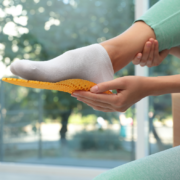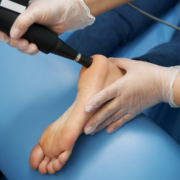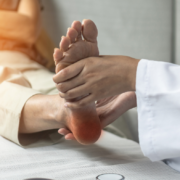Custom Orthotics Cater to Feet of All Ages
Sometimes, we all need a little extra support to function. And when it comes to your feet, that’s especially true! Tired arches and aching heels don’t usually mend themselves, and leaving problems untreated can lead to further complications. This holds true for both our youngest patients and the senior citizens that we treat at Carrollton Foot Center.
In many cases, conservative interventions can make all the difference. That’s where custom orthotics come in, offering personalized solutions for both children and adults. Take a look at the information below to find out what these sole savers can do for you!
Growing Strong: Orthotics for Developing Feet
- Children’s feet are constantly growing and evolving, and sometimes, that growth can lead to misalignments like flat feet or high arches.
- Custom orthotics, crafted to mold perfectly to a child’s unique foot shape, can promote proper development, guiding growing bones into correct alignment while reducing the risk of long-term problems like hip and knee pain.
- Early intervention with orthotics can address issues like heel pain and ingrown toenails, improving a child’s overall comfort and participation in activities.
- By providing stability and support, orthotics can improve balance, coordination, and endurance, giving young athletes a boost in their chosen sports.
Stepping Ahead: Orthotics for Adult Feet
- Whether it’s plantar fasciitis, arthritis, or simply tired feet, orthotics can redistribute pressure and provide cushioning, leading to pain relief and improved mobility.
- Orthotics can address problems like foot pronation or supination, preventing further damage and improving overall posture and gait.
- For individuals with diabetes or neurological issues, orthotics can play a crucial role in preventing foot ulcers and promoting wound healing.
Customized for You
- Unlike the one-size-fits-all approach of over-the-counter inserts, custom orthotics are made specifically for each individual’s foot.
- The precise fit minimizes pressure points, providing targeted support exactly where it’s needed.
- High-quality materials ensure your orthotics withstand the demands of daily life.
- With proper care, custom orthotics can offer years of improved foot health and comfort.
Wondering if orthotics are right for you? Come ask board-certified podiatrist Dr. Naghmeh Lilly Khavari! Committed to helping all her clients in Carrollton, TX, she offers a wide variety of treatments, from ingrown toenails to advanced surgical solutions. Contact Carrollton Foot Center’s office at 469-998-3668 to schedule an appointment today!






